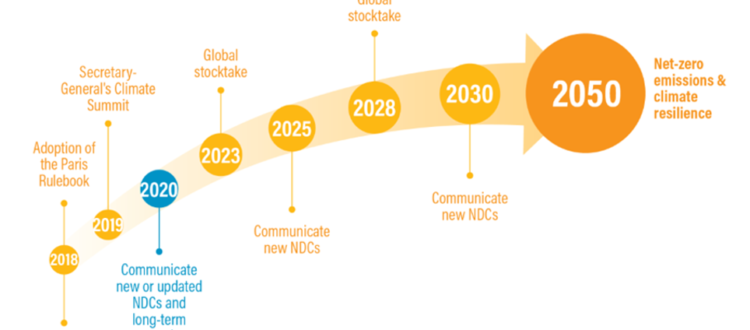SHAPING THE GLOBAL STOCKTAKE WITH A VIEW TO EQUITY AND HUMANITY
One of the central themes of this year’s mid-term negotiations sessions, which have just opened in Bonn, is the Global Stocktake (GST). On the first day, so apart from the opening plenary, most of the events focused on it.
What is the Global Stocktake (GTS) and where do we stand?
The GST is the review mechanism foreseen by Art. 14 of the Paris Agreement, which aims to assess every 5 years the progress made and how much more needs to be done to achieve the ultimate goals of the agreement (here is the link to our previous article for more details).
By its very nature, the GTS includes in its analysis all the objectives of the Paris Agreement, none excluded: from mitigation to adaptation, from climate finance to Loss & Damage, to mention a few. Moreover, as the UN Special Rapporteur on Climate Change and Human Rights, Ian Fry, points out, the TEM process cannot be reduced to mere technical assessments and solutions that risk ignoring the human face of the problems it underlies. The ultimate goal is to protect the planet and people. Therefore, human rights and the concepts of fairness and justice must be part of it in their own right, as must the issue of the historical responsibilities of industrialised countries.
At the moment, the technical phase of the first TEM cycle, which focused on the collection and analysis of data on the current state of play of global climate policies, is drawing to a close. COP28, on the other hand, will open the political phase of defining the targets to be achieved at the national level and will lay the foundation for establishing the next steps of the second GST cycle. In addition, Nationally Determined Contributions (NDCs) for the period 2025-2030 are expected soon, and in the meantime, the window for action to stay within the 1.5°C limit is closing.
This means that these interim sessions and the next COP28, at the end of November in Dubai, represent a turning point where we need to be ambitious. The hope is that COP28 will end with a binding decision for states on targets to be achieved in the short term, with firm commitments on the energy transition and the final fossil fuel phase-out.
Human rights, equity and justice
All this while respecting human rights and producing fair results in favour of those who suffer most and have the least from climate change. In this sense, attention is already being drawn to the risk that developed countries mostly focus on only seemingly green solutions such as geoengineering. Or that they tend to shift the focus of the GST process almost exclusively to mitigation measures, neglecting both adaptations to existing impacts and financial means to support the most vulnerable countries.
Finally, both civil society and the Special Rapporteur raise strong concerns about the cooperation of the Emirati (UAE) Presidency at these interim sessions.
If civil society had found in the Egyptian Presidency an ally for the inclusion of the Loss & Damage Fund among the COP27 agenda items, the UAE does not seem to be as ambitious. A possible lack of leadership from the COP28 Presidency would be detrimental to the expected results on GST.
In any case, one awaits the opening of the actual negotiating sessions to see how the debate around the TSO will evolve.
Article by Erika Moranduzzo and Teresa Giuffrè, ICN volunteers

